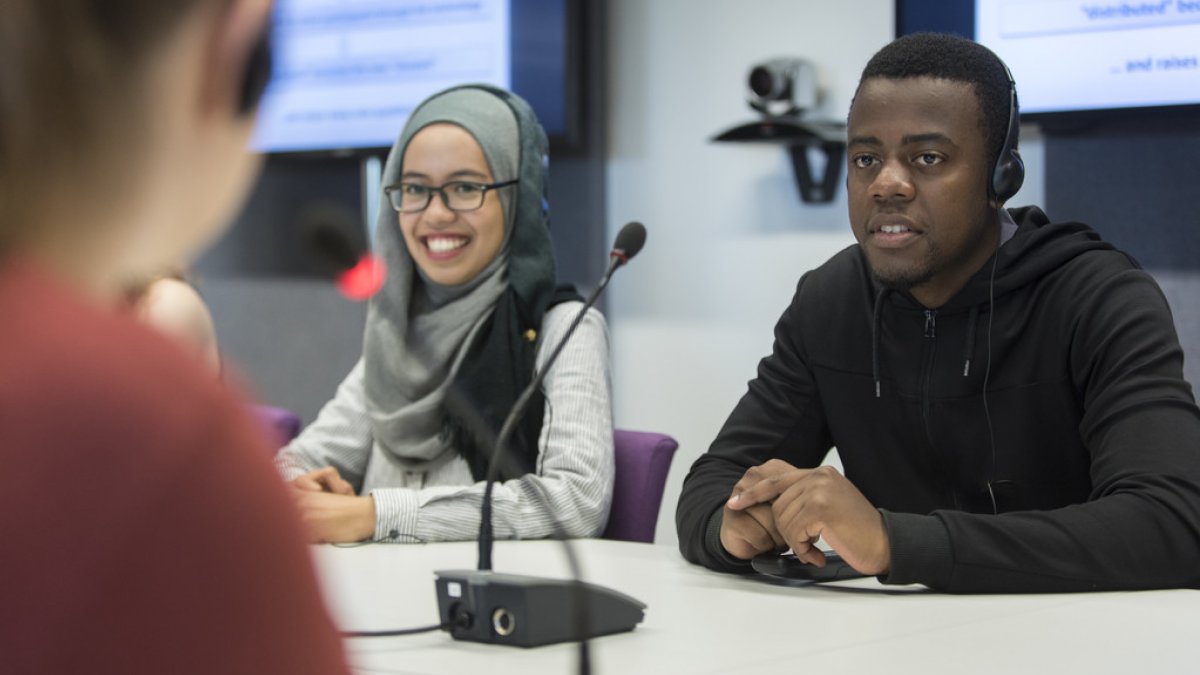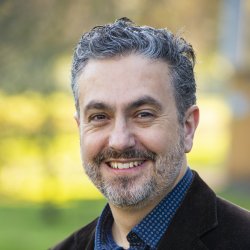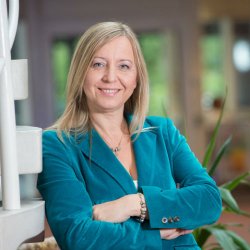Five reasons to study Surrey's MA Translation course
We reveal what makes our MA Translation course different and the secret behind our graduates’ success.
Our MA Translation course combines academic rigour with a strong professional orientation and provides a university experience that will take you places. Here are five reasons why you should choose the University of Surrey for studying translation.

1. Benefit from our expertise and experience
Surrey’s MA Translation course is one of the longest-running translation programmes in the world. Drawing on over 30 years of experience in translator education, our internationally recognised MA programmes are continually updated to integrate the latest developments in translation and interpreting, and meet the demands of a fast-evolving industry. You will have an opportunity to learn from research-active academics, whose teaching is informed by a vast and constantly evolving body of knowledge, and from professional translators and interpreters, who bring their practical experience and knowledge of the language services industry to the classroom.
We maintain close links with the main professional bodies of the language services industry, including
- The Chartered Institute of Linguists’ Higher Education Language Partnership
- The Institute of Translation and Interpreting
- The Translation Automation User Society
- The Globalization and Localization Association
- The European Language Industry Association.
2. Learn to use cutting-edge technologies
Surrey’s Centre for Translation Studies has an enviable range of first-class facilities set in a purpose-designed building at the heart of our campus. You will learn to work hands-on with computer-assisted translation software and advanced corpus tools and resources.
This includes free, 24/7 access to software such as:
You will also have access to two state-of-the-art conference interpreting suites equipped with ISO-approved double interpreting booths (as used by international institutions for simultaneous interpreting), portable interpreting equipment used for museum or factory tours, a two-way and multipoint video-conferencing system and, to meet the growing demand for remote interpreting, a cloud-based remote simultaneous interpreting platform. Thanks to Surrey’s expertise in the responsible integration of human and machine in translation and interpreting, you will learn not just how to use technologies, but also how to use them knowledgably and discerningly.
3. Tailor your course to your interests
Throughout your course, you will study core modules, as well as choose from a diverse range of optional modules, meaning you can tailor your studies to your academic and career goals, focusing on the areas of interpreting and translation you are most interested in. For example, you will be able to give more emphasis to the technological, cultural, audio-visual, business, or research aspects of translation and interpreting, or a combination of these.
4. Boost your employability
Guided by professional translators and interpreters, you will practise translation and interpreting in language-specific groups, simulating real-life scenarios and covering a range of specialisms. You will be able to become a student member of professional bodies like the Institute of Translation and Interpreting, which will prepare you to become a full member once you graduate. You will develop a Professional Engagement Portfolio (to document your extra-curricular activities), as you enhance your soft skills and gain experience working with language services providers through work placements or other forms of collaboration. This allows you to build your CV as you study.
5. Open doors to a range of careers
As a translation graduate and qualified language professional, you will be able to take advantage of global employment opportunities. Our recent graduates have pursued careers at international organisations, government bodies and the private sector, as well as developing successful freelance ventures.
Job opportunities include:
- In-house and freelance translators and interpreters
- Multilingual content writers
- Language service provision managers
- Project managers
- Localisation specialists
- Transcreation specialists
- Language and translation tutors.
A few of our graduates stay on to study for a PhD at Surrey’s Centre for Translation Studies or other renowned institutions, in order to pursue further research and embark on an academic career.


